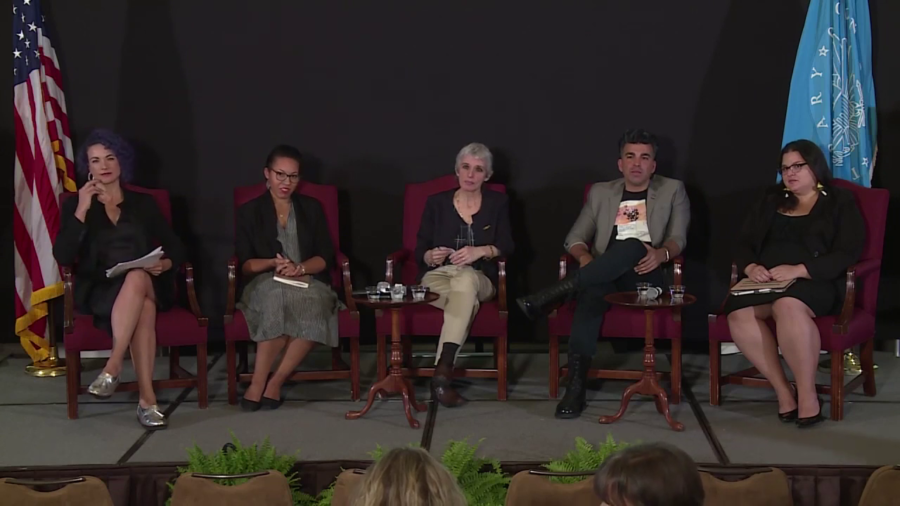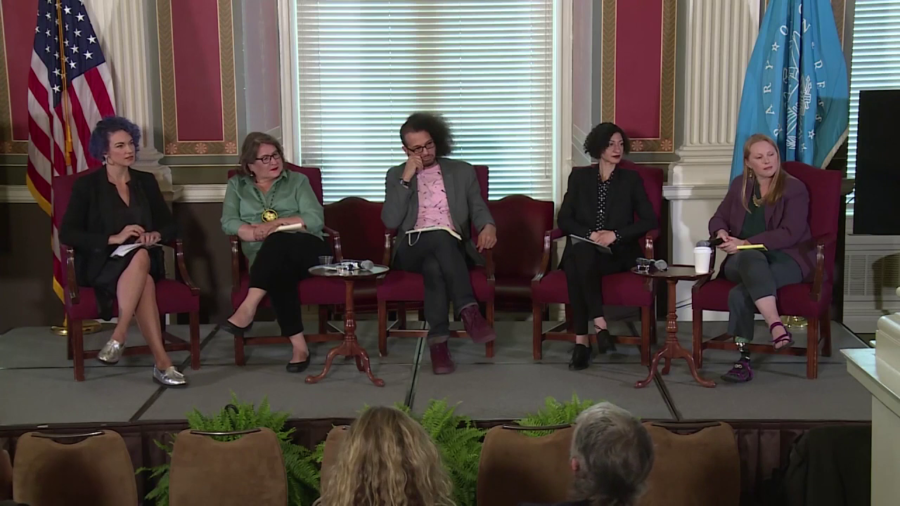The overview of this particular panel, if you’ll notice in the program is called “Alternative Futurisms.” And this, as should probably be evident by now is centered on science fiction and the imagination. It really has a power to inspire and instruct us as we envision the future, but it’s also long been a vehicle for myths of Manifest Destiny. And so, we wanted to start today by talking about the viewpoints of humanity’s future that are alternative to some of these mainstream narratives, and how we might conceptualize life off-world in radically different ways.
Lucianne Walkowicz

Becoming Interplanetary, Beat 2: Mars on Earth
in Becoming Interplanetary: What Living on Earth Can Teach Us about Living on Mars
Our second panel today…deals with the intersections between Mars as a planet, a real physical space, and the way that we think about environments in Earth history. And nowadays we know more than we ever have before about the Martian environment and some of the history there. But as I mentioned this morning, in many ways, we’ve still just scratched the surface. And so, we want to look in this panel at what we can do to think about the exploration of other worlds, or human beings living off-world, in light of the history that we’ve had here on our own planet.

Becoming Interplanetary, Beat 1: The Right Stuff
in Becoming Interplanetary: What Living on Earth Can Teach Us about Living on Mars
In this first panel we’ll be talking about how narratives of space exploration influence our modern ideas about who can explore space, and what it means to really have the right stuff, and how that meaning might evolve, and how we could change it.

